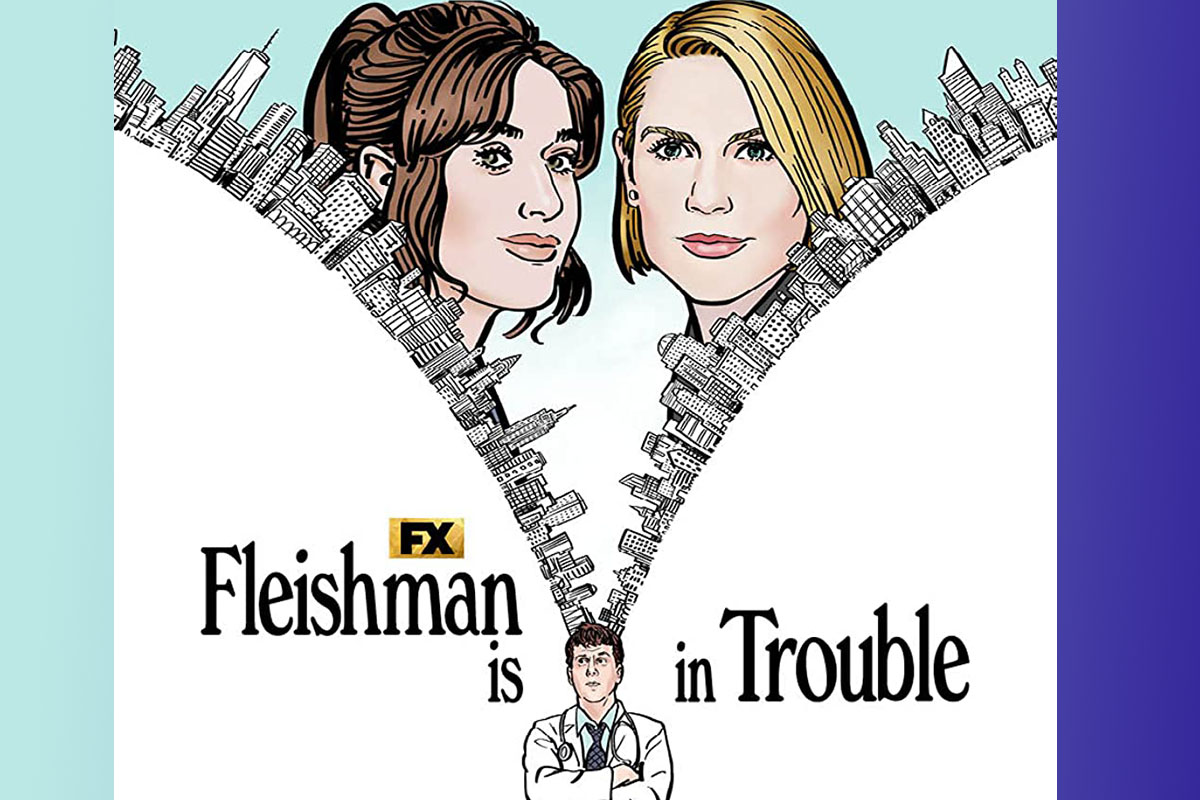It’s been a week since the finale of FX’s “Fleishman Is In Trouble” aired, and I feel like I will be processing the show for at least another few weeks (or months, or years?). The limited series based on the book of the same name by Taffy Brodesser-Akner, which follows the life of doctor Toby Fleishman as he deals with the disappearance of his ex-wife, Rachel, still has me in a chokehold.
There is so much to discuss about the finale, but one particular and very surprising feature is still stuck in my head: the Hebrew version of a pop classic that plays in the episode following a very dramatic and moving scene in which Hannah, Toby’s oldest daughter, refuses to have her bat mitzvah — because she wants to make her own traditions.
When the song started playing I was sure it was an Israeli rock classic of some sort that I somehow didn’t know of, but when the chorus came on I just about gasped: It was a Hebrew cover of “Fight Song,” and it was so, so good.
The 2014 “Fight Song” by Rachel Platten was a radio hit and became Hillary Clinton’s campaign song in the 2016 election, to go with her slogan — “Fighting for Us.” Since the show takes place in the summer before the 2016 election, the song first shows up in fourth episode, with Toby’s two children, Hannah and Soly, singing it together in the backseat of the car. It’s a moment of resilience, showing Hannah belting the lyrics despite the fact that she was just kicked out of camp because another boy shared revealing selfies of her.
The “take back my life song” is a perfect choice for the show — whose principal characters all feel like they’ve lost the handle on the steers of their lives. It’s also a feminist rallying cry in a show that’s all about the way the lives and purpose and humanity of women get subsumed into the stories of men.
Platten, just like Libby and Rachel, is a Jewish mom of two (her husband, Kevin Lazan, once dubbed their Hanukkah bacchanal Lazanakkah — I’m obsessed). Platten has also been open about experiencing postpartum anxiety, and “Fleishman” addresses difficult postpartum experiences.
The Hebrew cover of the song is sung by Yuval Ben-Ami, a journalist, writer, travel guide and musician. Brodesser-Akner said she found him after listening to his cover of Lorde’s hit song “Royals” in Hebrew and wrote the song into the episode because she wanted it to be a part of the show.
I wrote it into the script so we could hire him — his name is Yuval Ben-Ami — to translate and sing Fight Song in Hebrew. We released it as a single here today. https://t.co/2m3J9Eo5Xc
— Taffy Brodesser-Akner (@taffyakner) December 30, 2022
This isn’t Ben-Ami’s first translation of a political song that became a rallying cry — he also turned Katy Perry’s “Roar” into a leftist rallying ahead of Israel’s 2015 elections, and translated the Irish protest song “Hey Ronnie Reagan” into a 2012 critique against Israeli minister Avigdor Lieberman.
Yet there’s nothing political about this specific song translation. Ben-Ami does not translate the word fight into Hebrew, choosing instead to use the English word, which makes it more recognizable as the original and also allows him to avoid Hebrew words most usually associated with armed conflict — which this song and show are honestly not about.
The entire translation chooses lyricism over precision — which makes it flow so well and channel the original meaning of the song even better. As a native Hebrew speaker I will say this is one of the finest song translations I’ve ever heard — it truly elevates the original.
The Hebrew version of “Fight Song” is now available on Spotify, Apple Music and other places where you find your music, and will probably be part of all of my 2023 playlists.








